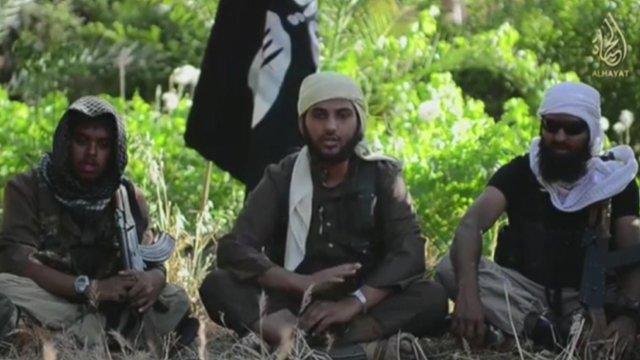Counter terrorism police remove 1,100 online posts a week
- Published
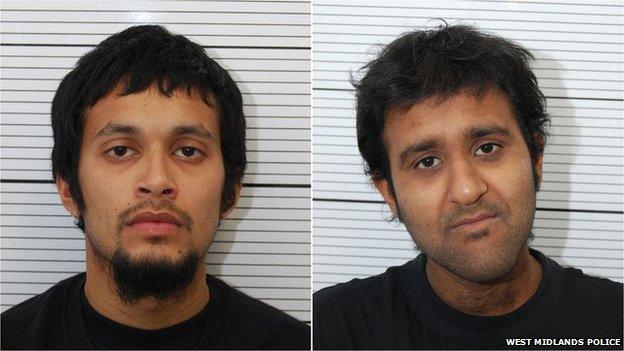
Ahmed (left) and Sarwar used "an element of deception" to hide what they were planning to do from their families, police said
More than 1,100 pieces of material which breach anti-terrorism legislation are being taken down from the internet each week, according to the head of the police unit tackling online extremism.
Det Ch Supt Sue Southern, who also leads the West Midlands Counter Terrorism Unit, was involved in the case against two Birmingham men who pleaded guilty to preparing to carry out terrorist acts.
Nahin Ahmed and Yusuf Sarwar, who travelled to Syria to join rebel fighters, were jailed for 12 years and eight months at Woolwich Crown Court.
Ms Southern said stopping people being recruited to terrorist groups online was a "significant challenge".
"My workload, as is reflected across the country, has increased five fold - we are holding the biggest case load outside London," she said.
Ahmed had sought advice via the internet from a fighter in Syria and from extremists in Denmark and Sweden.
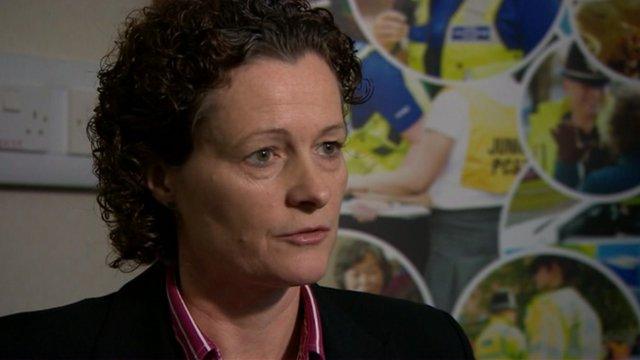
Det Ch Supt Sue Southern is head of the West Midlands Counter Terrorism Unit
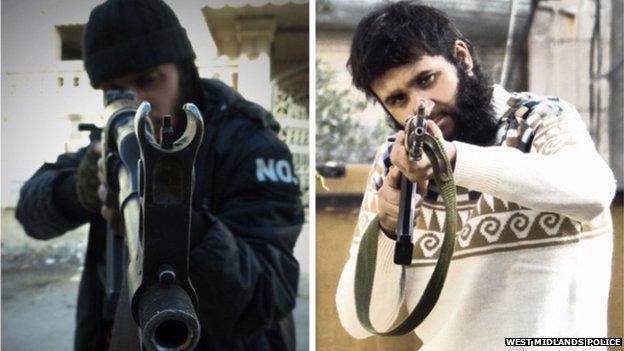
Nahin Ahmed (left) and Yusuf Sarwar admitted terrorism charges
Ms Southern said both men had used "an element of deception" to hide what they were planning to do from their families.
"They'd produced a mock-up of a poster claiming to be a university trip out to Turkey - the family initially believed that but then became suspicious and came forward to the police to raise the alarm," she said.
When the men returned to the UK, police found "significant high levels of explosive residue" on their clothing and glasses, and there were also images of them holding weapons.
"The ability for them to come back and potentially launch attacks back here in the UK - that's the risk, that's the concern," Ms Southern said.
She called for people to come forward "much sooner", if they believed someone had become radicalised.
"We are very grateful to both families and we are sympathetic to where [they] find themselves, with their sons facing prison sentences.
"We hope this gives people the confidence to come forward, but to come forward sooner."
- Published6 July 2014
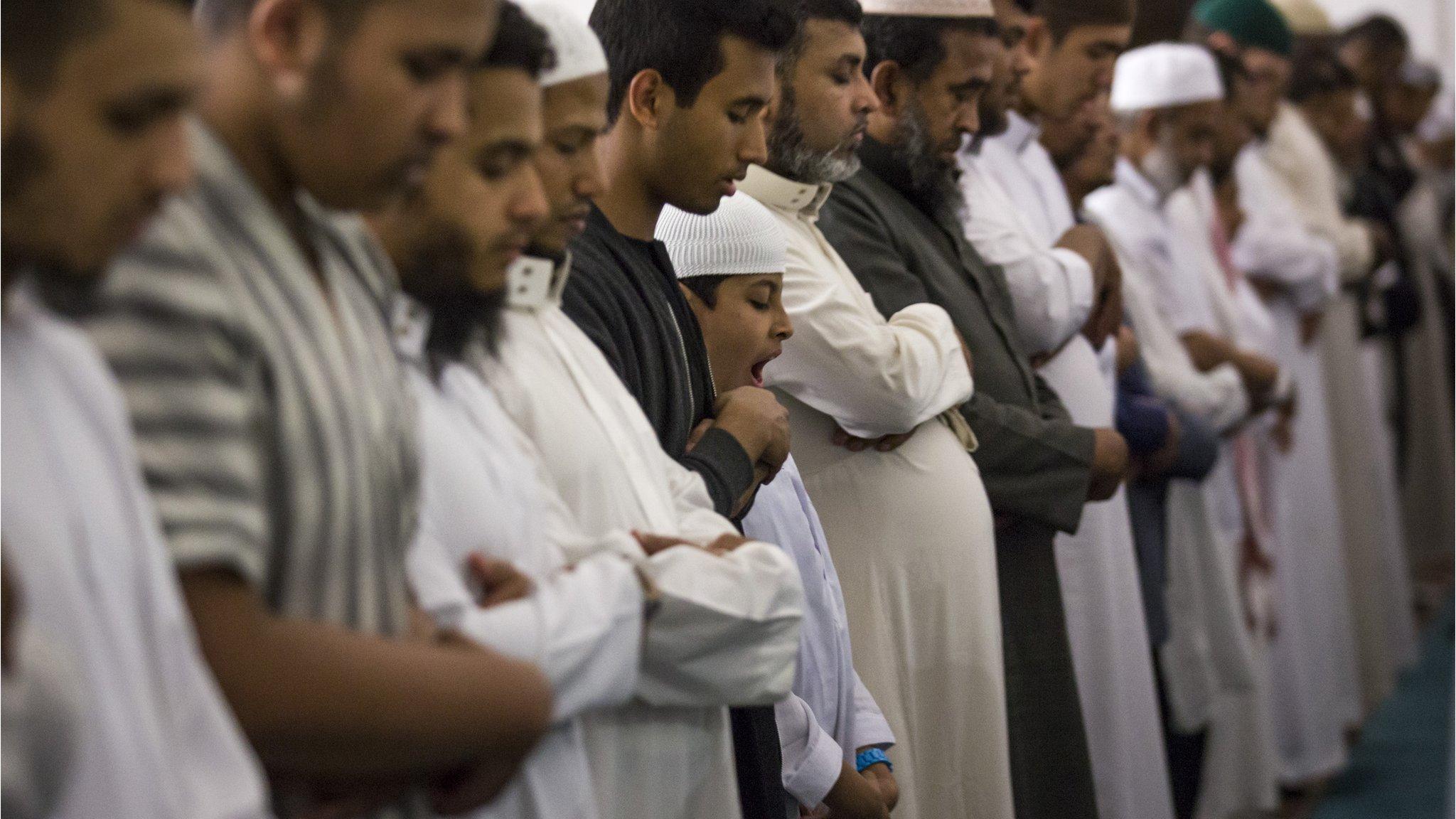
- Published3 July 2014
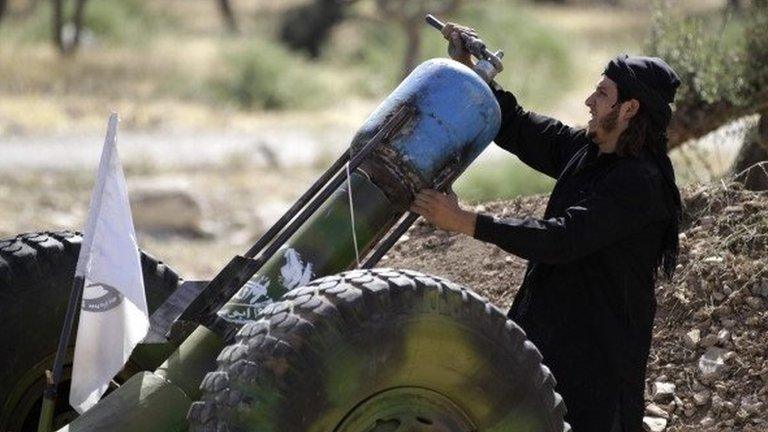
- Published23 June 2014
